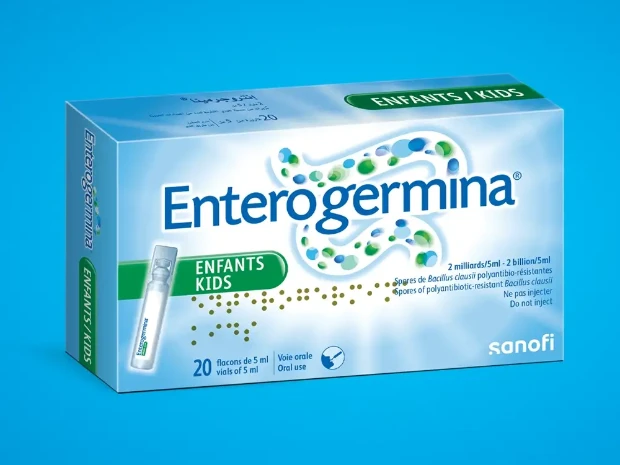What Causes Diarrhea in Children?
Diarrhea and vomiting is usually caused by contaminated food or water. It may also be caused by viral gastroenteritis, bacteria and parasites, non-infectious disease or condition like food allergy and lactose intolerance.
Parasites Entering the Body
This usually happens through food and drinking water, though some parasites are known to thrive in sandboxes and swimming facilities.
Bacterial Infection
Microorganisms, also known as pathogens, can enter the body via the eyes, nose, mouth and wounds that breach the skin barrier.
Digestive Trouble
Intolerance to certain foods can onset diarrhea during the digestive process.
How do you know your child has Diarrhea?
Symptoms include excessive bowel movement, which can be accompanied by vomiting that may lead to dehydration. Any of the following symptoms are to be expected
Abdominal Pain
Diarrhea is a digestive irregularity, so cramps and spasms are not uncommon. Abdominal pain may also arise due to bloating as a result of the leaky gut.
Urgent, Watery Stools
When stool is unable to harden, urgency to defecate is natural. Diarrhea involves the repeated passing of loose, thin stools.
Fever
Diarrhea caused by viral infection in a child is likely to be accompanied by a fever. Make use of a thermometer to determine a child’s status.
Diarrhea in Children: Tips & Remedies
When your little one is suffering, you need to explore all possible avenues for brining relief. When in doubt, always consult with a doctor or HCP first.
Offer a variety of fluids
Dehydration is a major risk during diarrhea. If your child isn’t partial to plain water, offer coconut water, or diluted apple juice. Avoid soft drinks!
Temporarily adjust their diet
Introduce more bland, starchy foods such as rice, crackers, pasta and mashed potatoes.
Monitor stool frequency
Keep track of the urgent need to defecate and determine whether it is getting more or less frequent. By doing this you’ll know if your measures are working.

How to Prevent Diarrhea in Children
Every parent should have measures in place to prevent the possibility of diarrhea in their children’s day to day experience.
Frequently Asked Questions
It’s never much fun dealing with a little one who is experiencing symptoms of diarrhea. You’ve probably got a few questions for us; check out our FAQ.
-
Diarrhea and vomiting is usually caused by contaminated food or water. It may also be caused by viral gastroenteritis, bacteria and parasites, non-infectious disease or condition like food allergy and lactose intolerance.
-
A child suffering from diarrhea will benefit from bland, low-fiber foods such as bananas, rice, apples and toast (B.R.A.T). A targeted probiotic is recommended to bring the intestinal flora back into balance, thus quickly lessening the symptoms of diarrhea.
-
Children’s digestive and immune systems benefit significantly from prebiotic and probiotic supplements. A daily dose of spore-forming bacteria, such as Bacillus Clausii, can help prevent the onset of diarrhea in kids long-term.
-
Diarrhea and vomiting are frequent symptoms of intestinal diseases in children.
Our Product
Enterogermina®’s range will scan the gut for intestinal flora imbalance and deliver billions of good bacteria to treat both the condition and associated symptoms. 1

How can Bacillus clausii help you solve your gut problems?
Bacillus clausii is a type of spore-forming good bacteria that works to rebalance the intestine. When consumed regularly (or as advised by a HCP), it can help to treat and prevent different conditions associated to gut disorder.
Stay Informed
Getting to know your gut, and identifying your personal triggers, is the first step to better intestinal health. Stay informed as to how gut microbiota become negatively affected by everything from traveling to seasonal changes, and how to bring about internal balance to your life.
- Enterogermina® 2 billion vials Patient Information Leaflet Last revised April 2022.
- Enterogermina® 6 billion sachets Patient Information Leaflet Last revised April 2022.
- Enterogermina® 2 billion capsules Patient Information Leaflet Last revised April 2022.
- Product information
- Stress and stomach pain: When should you see a specialist?; UChicagoMedicine. Chicago: The University of Chicago Medicine; 2020 [quoted June 2021] https://www.uchicagomedicine.org/forefront/gastrointestinal-articles/stress-and-stomach-pain-when-should-you-see-a-specialist
- Healthy Eating Pyramid; Harvard University. Boston: Harvard T.H. Chan School of Public Health; 2008 [quoted June 2021]. https://www.hsph.harvard.edu/nutritionsource/healthy-eating-pyramid/




.webp/jcr:content/Enterogermina-AE-capsule.webp)




